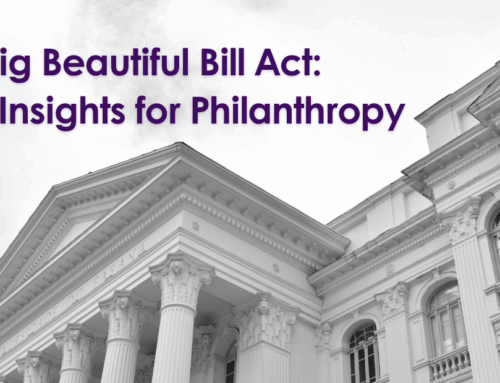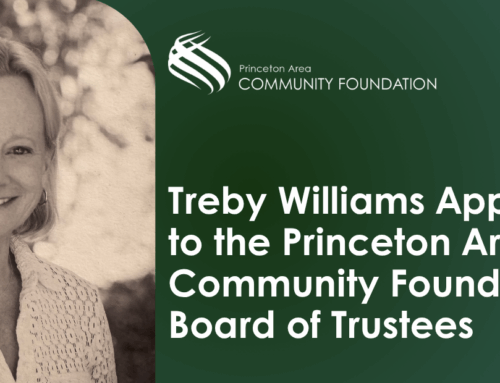For nearly 90 years, charitably-minded individuals and families have established donor-advised funds to help carry out their philanthropic wishes. Popularity of the donor-advised fund steadily grew, especially beginning in the 1990s, eventually resulting in official recognition in the Internal Revenue Code under 2006 tax law updates. Today, over one million donor-advised fund accounts hold nearly $160 billion in charitable assets, according to the latest numbers.
The growth of the donor-advised fund as a useful charitable giving tool has made this vehicle something of a celebrity. You may have begun to see articles about donor-advised funds pop up, including in some financial publications. And yes! We read those articles, too! A top priority for our team is keeping up with proposed legislation and commentary about charitable giving, including particular vehicles such as donor-advised funds.
If you think about your options for your charitable giving plans, please reach out. We would be happy to share perspectives and ideas that take into consideration current trends and legislative developments.
To that end, you may find it helpful to review the types of funds available through the Community Foundation, which include donor-advised funds and much more.
First, as may be aware, a “donor-advised fund” enables you to establish a specific account for charitable giving. You make a tax-deductible contribution of cash or other assets to the fund, and then recommend grants to favorite charities during the current year and in future years depending on your goals and plans.
Second, the community foundation has its finger on the pulse of the community’s most pressing issues. An “unrestricted fund” or a “community grants fund” provides you with an opportunity to support community needs now and in the future, whatever they may be. One of the biggest benefits of a community foundation is its perpetual structure that allows support to nonprofits to evolve over time as priorities in the region shift.
Third, to target charitable giving to specific areas of community need (such as education, health, environment, or the arts), you can set up a “field-of-interest fund” to establish parameters for grant making under the ongoing guidance and expertise of the community foundation’s staff. Plus, field-of-interest funds can be a wonderful alternative to a scholarship fund and accomplish your charitable goals even more efficiently and effectively.
Fourth, a “designated fund” allows you to focus charitable giving on a specific agency or purpose. Over time, the community foundation’s staff manages the distributions from the fund according to the terms you establish.





